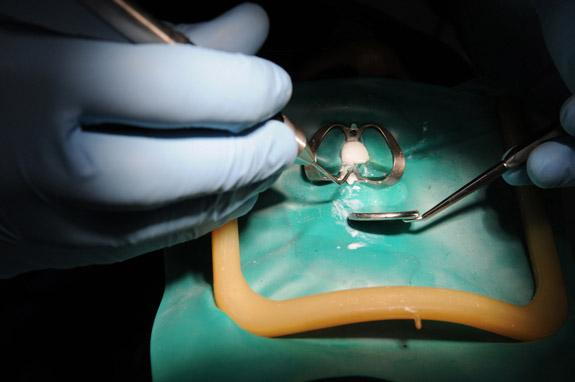
Root canal therapy should relieve the pain you feel. Until your root canal procedure is completely finished. Meaning once the permanent filling is in place and a crown, if needed, is also, in place. At this point it is wise to minimize chewing or applying pressure to the tooth under repair. This step will help avoid contaminating the tooth’s interior and also may prevent a fragile tooth from breaking before the tooth can be fully restored.
For the first few days following the completion of treatment, the tooth may feel sensitive due to natural tissue inflammation, especially if the area was experiencing pain or had an infection before the procedure. This sensitivity or discomfort usually can be controlled with over-the-counter pain medications such as ibuprofen (Advil, Motrin) or naproxen (Aleve). Most patients can return to their normal activities by the next day.
As far as oral health care is concerned, brush and floss as you regularly would, and see your dentist at normally scheduled intervals. Since the final step of root canal therapy is application of a restoration such as a crown or a filling, it will not be obvious to onlookers that a root canal was performed.
Root canal treatment is highly successful; the procedure has more than a 95% success rate. Many teeth fixed with root canal therapy can last a lifetime.
Complications of Root Canal Therapy
Despite your dentist’s best efforts to clean and seal a tooth, new infections might emerge. Among the likely reasons for this include:
- More than the normally anticipated number of root canals in a tooth (leaving one of them uncleaned)
- An undetected crack in the root of a tooth
- A defective or inadequate dental restoration that has allowed bacteria to get past the restoration into the inner aspects of the tooth and recontaminate the area
- A breakdown of the inner sealing material over time, allowing bacteria to contaminate the inner aspects of the tooth
Sometimes re-treatment can be successful. Other times, endodontic surgery must be tried in order to save the tooth. The most common endodontic surgical procedure is an apicoectomy, or root-end resection. This procedure relieves the inflammation or infection in the bony area around the end of your tooth. In this procedure, the gum tissue is opened, the infected tissue is removed, and sometimes the very end of the root is removed. A small filling may be placed to seal the root canal.
Since some of the reasons that a tooth’s pulp becomes inflamed and infected are deep decay, repeated dental procedures on a tooth, and large fillings, following good oral hygiene practices (brushing twice a day, flossing and using an antiseptic mouthwash at least once a day, and scheduling regular dental visits) may reduce the need for a root canal procedure. Trauma resulting from a sports-related injury can be reduced by wearing a mouth guard.
https://plus.google.com/101649060712681915175
Cosmetic Dental Texas
2101 Crawford St, Suite 103
Houston, TX 77002
(713) 654-7756
https://cosmeticdentaltexas.com

